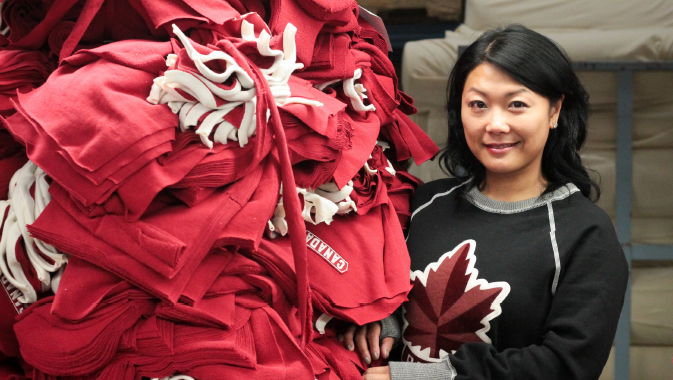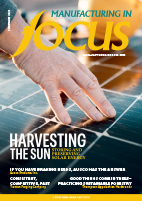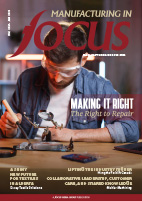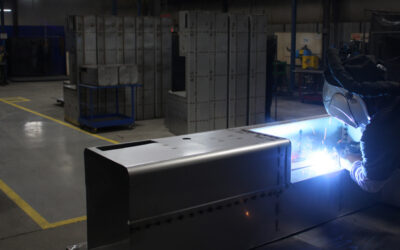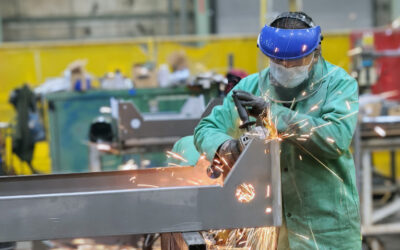Referring to her family’s history as “a typical immigrant story,” Redwood Classics CEO Kathy Cheng remembers spending a large part of her childhood in her parents’ textile business, playing, napping and doing homework amongst the huge rolls of fabrics in the factory. And to hear her recount it, she wouldn’t have it any other way: it’s made her the person and business owner she is today.
“I wasn’t born in Canada and neither were my parents,” says Cheng. “I came with them from Hong Kong when I was very young. Like many immigrants at the time, we had very humble beginnings — my dad worked three jobs, and my mom worked full time. I was a latchkey kid at the age of five.”
While today she and her dad are partners in the all-Canadian boutique-style garment manufacturer Redwood Classics, produced by WS & Co. Ltd., her family’s origins started with a contract sewing facility in Toronto in 1988 with just five people — including Cheng’s aunt and uncle — and ten machines.
“It was small, but it was the change to our family’s well-being, socially and financially,” she says of WS & Co. Their first clients included Club Monaco, and Roots Canada, a company they still proudly partner with 30 years later.
In the 1990s the company — still family-owned — employed close to 500 people, housed in a 200,000-square-foot facility in Scarborough. It was a vertical apparel manufacturer with a mill house, dye house, sewing facility and screen printing within the Toronto environs, producing quality knits for Polo Ralph Lauren, J. Crew, and a number of other American brands.
“Being so Canadian is something we’re very proud of,” says Cheng. “And we’re proud of our legacy and history of manufacturing for higher-end designer brands and retail brands.”
In December 2001, however, with companies sourcing labour offshore to China, followed by the 2008 global financial recession, the business landscape changed, and WS &Co. couldn’t compete with the labour rates or taxes. The Chengs were at a crossroads.
“It was just my dad at that time with our team of makers, and I was helping out, but not in an ownership position,” says Kathy. “The factory and the makers were always a big part of what we did, and I remember having a big ‘a-ha’ moment: Do we continue fighting the battle and restructure, or do we retire, like most textile families? It was a hard decision.”
When Kathy’s dad asked her to be his business partner in 2008, she initially said no, wanting to focus on her own career at the time.
“I still remember, it was almost Christmas, and I was standing on the product floor amidst the humming of sewing machines and word got out that we might not be around anymore,” says Kathy. “I felt a huge sense of emotion. A number of makers had been with us for almost 20 years and had watched me grow up. It really was a family business. I realized I had such a fulfilling and wonderful life because of the factory and because of the makers. I grew up in factories, experiencing the world from humble beginnings. All those childhood memories came flooding back.”
She decided to partner with her dad, restructuring with 40 people and moving the company to a facility they’d outgrown years before. Now, 10 years later they’ve expanded into new facilities, tripled their footprint and head count, and are part of a proud Made in Canada story.
For Kathy, honouring the makers at her company and supporting supplier diversity, have always been imperative to her, both professionally and personally.
“I’m really proud that we were able to build this community,” she says. “Sometimes it’s hard for immigrants from other countries because they speak with an accent or their English isn’t as we’re used to, and it’s hard for them to find jobs. It’s hard for them to have a Canadian experience, and that’s one of the things I’m proud of; taking in a number of talented immigrants.”
Extending that love of family to her employees is one that Kathy also encourages in her young children, instilling respect and understanding of her job and its history in the family. Kathy brings them into the factory often, with a set of standards to follow each time.
“In respecting their elders, they need to say hi to their grandfather, my dad, and they have to respect the makers. I take them to every department to say hello to everyone as best they can, because without them there’s no us,” she says. “I grew up in factories, they were my playground, and I’m integrating that to my children. I understood the hard work and ethics that’s needed to run a business. I want to instil those values of hard work in my children and really strong work ethics and being respectful to people.”
Chinese New Year plays an important role in the company, as well as annual holiday parties. The first years of restructuring were challenging, and Kathy is sure to include all of her stakeholders, makers, suppliers, brand partners, distributors, banks, and insurance providers to show her thanks and celebrate with games, festivities and a 12-course Chinese meal.
“I believe you have to pay it forward,” she says. “I have been so blessed with these opportunities and I think it’s important that, if you’re in a position with these opportunities, you share that.”
Opportunities for Kathy include her journey to becoming a certified diverse supplier, with support and investment from corporations such as Ernst & Young to attend conferences, find her voice and continue learning. In 2015 she was named supplier of the year by CAMSC (Canadian Aboriginal and Minority Supplier Council), a pleasant surprise as WS & Co. is a tier two, indirect supplier and Kathy was thrilled to make it on the radar of corporations. She’s also received investment from GM in a diverse executive education program to be a better leader and understand her business better.
“Being in front of buyers is important of course, and my intention to get certified was to get buyers, but what ended up happening is meeting a wonderful community of builders driving innovation, diversity and inclusion.”
As she continues to attend workshops throughout the year, she has access to a number of development programs as a certified diverse supplier, and she hopes to help change the face of supplier diversity.
“Let’s reshape and reframe the message,” she says. “The message isn’t get certified and get business, it’s get certified and enhance your business. That’s what certification has done for me. It’s helped me enhance my business experience and my journey. I wish more diverse suppliers would understand that. I know I’m not the same person or same woman I was five years ago when this all started.”
Those years have included a celebration of micro accomplishments for Redwood Classics, while continuing to aim for bigger goals such as expanded and built domestic infrastructure. The textile industry in Canada is weak, says Kathy, and her company went against the grain to restructure and fight the battle.
“We lost a lot of skilled makers in the downturn. Many people were in their middle ages and doing career changes was challenging, which helped motivate me to keep doing this. But infrastructure is slowly building domestically, and close to 60 percent of the raw material consumed at our factory is now made within a 100-mile radius of our factory. We were sustainable before it was even a fashionable word.”
Kathy personally believes each person and organization needs to define what sustainability means to them, and at WS & Co., it’s twofold: environmental impact and durability. Transportation costs add to the impact, and so the products are domestically made, with about 50 percent of their factory output used domestically for Canadian consumption. And keeping it local also allows for a big focus on quality: engineering products and apparel to be customers’ favourites for the next 10 or 20 years.
“Our products last and are quality made,” says Kathy. “I always encourage people to look at their labels. Canadians don’t always recognize what it means to be made in Canada. Internationally and globally, it’s well recognized for its quality. Canada has been active on trade which is good, but there’s not enough Canadian manufacturers looking at that. We need to take advantage and be loud and proud that it’s made in Canada.”
While she says that grit, conviction, and resilience are very important to maintaining a business and keeping it going, giving back to the community and this country that has given her and her family so much will always be a priority.
“I also owe so much to my father,” she says. “I’m just honoured and blessed to be a voice for us. It’s been so fulfilling, especially the last couple of years starting to be celebrated. I’m really proud to say we trail-blazed Made in Canada, not sacrificing quality and not looking for cheapness. We came in and focused on quality and sustainability and environmental and socioeconomic impact on communities.”
What started off as loyalty to her family, she’s realized, became her drive to be a voice for the makers: those people who create clothing and are so rarely celebrated.
“Apparel is the closest thing to our skin and when do we celebrate the makers who create that? I’ve had this amazing life because of my makers. Without them, I wouldn’t be half the person that I am.”
In the end, she says, success ultimately means balancing people, planet and profit.
“It’s very touching and personal to me,” she says. “There aren’t enough women in manufacturing and top positions. I’m willing to be vulnerable, I’m an entrepreneur and mother and daughter and aunt and I’m all of those things and that’s what business is really all about! What’s the legacy I want to leave behind? I hope my legacy is to humanize business. The world moves so fast and technology is everywhere, but at the end of the day, even the person buying something online and making that click is an individual making a choice.”

